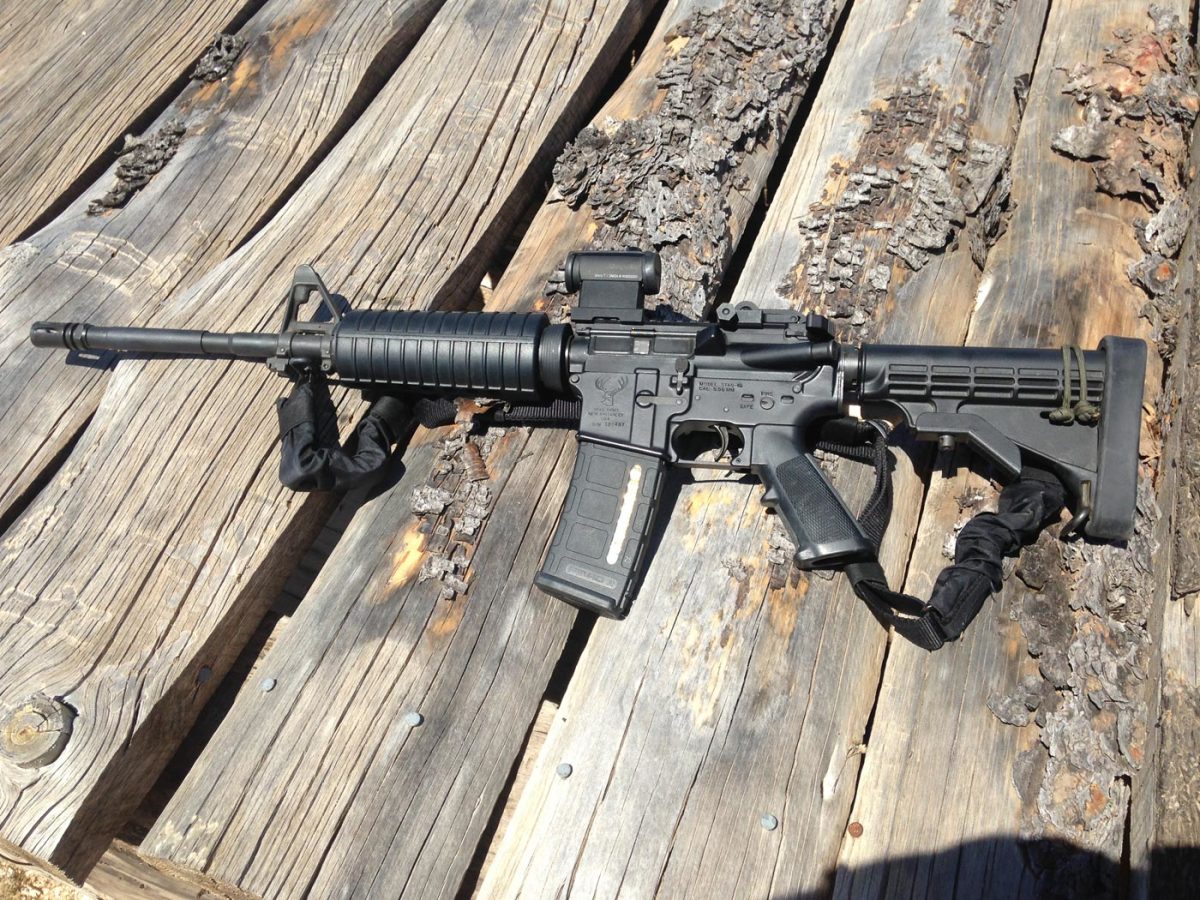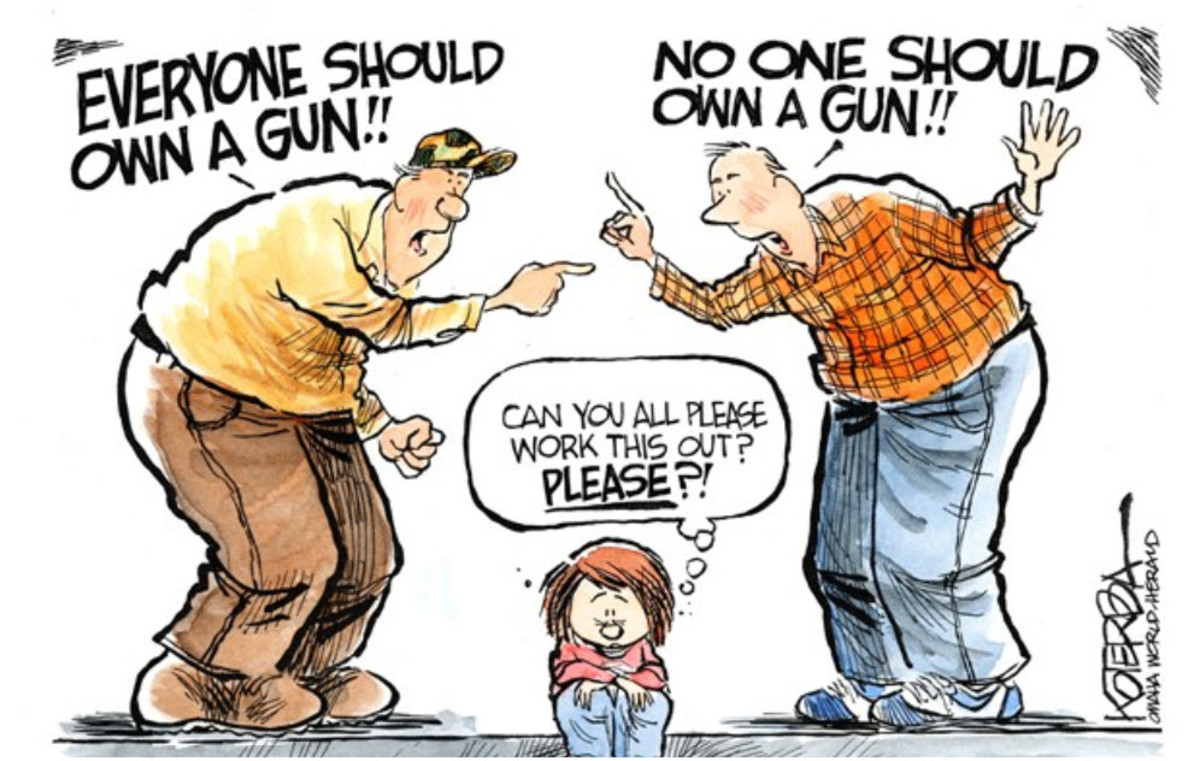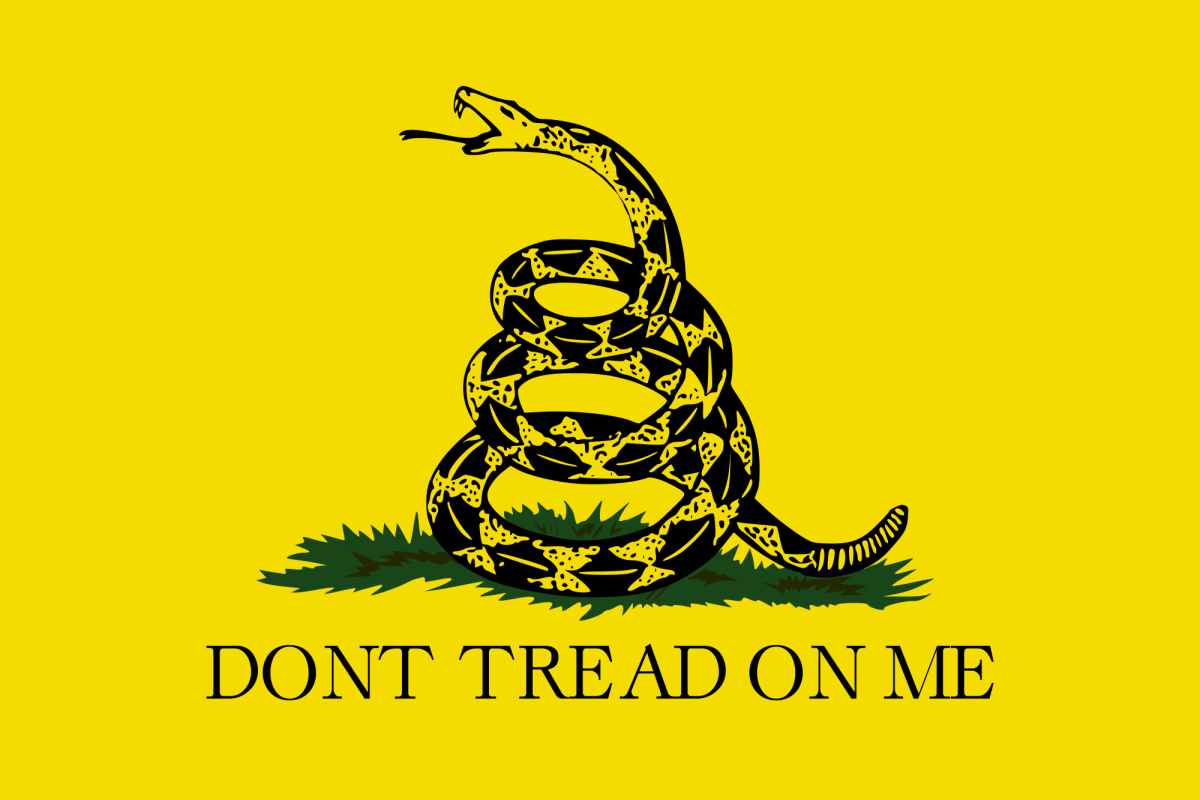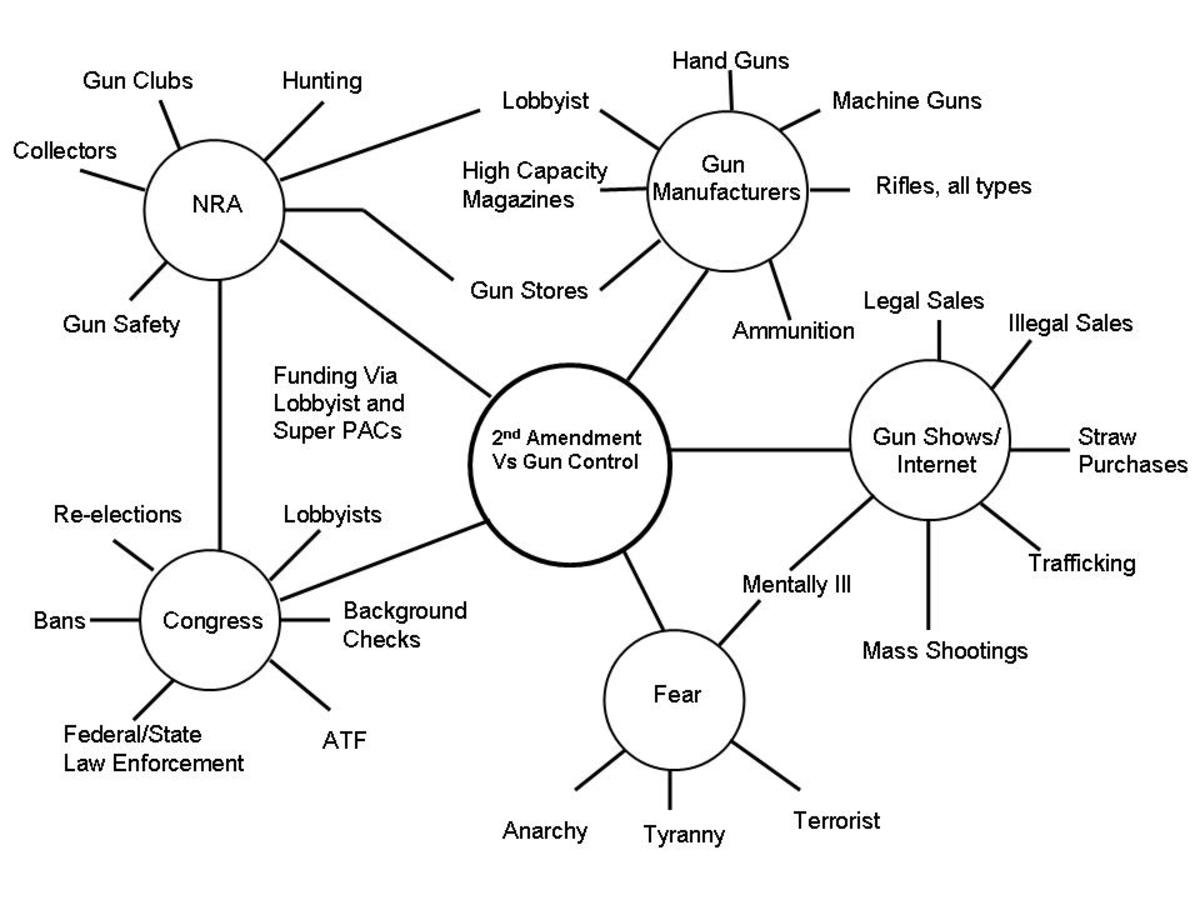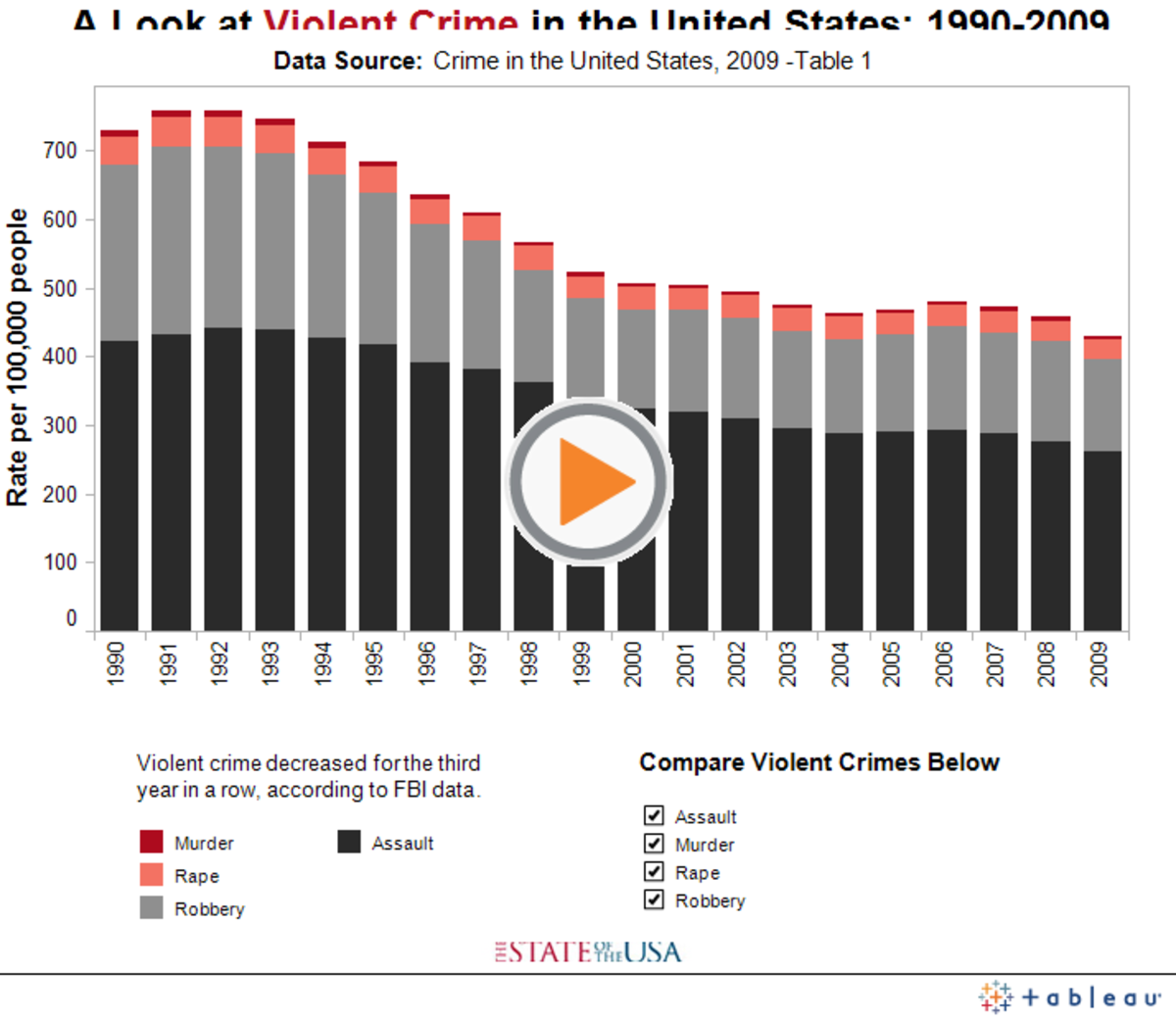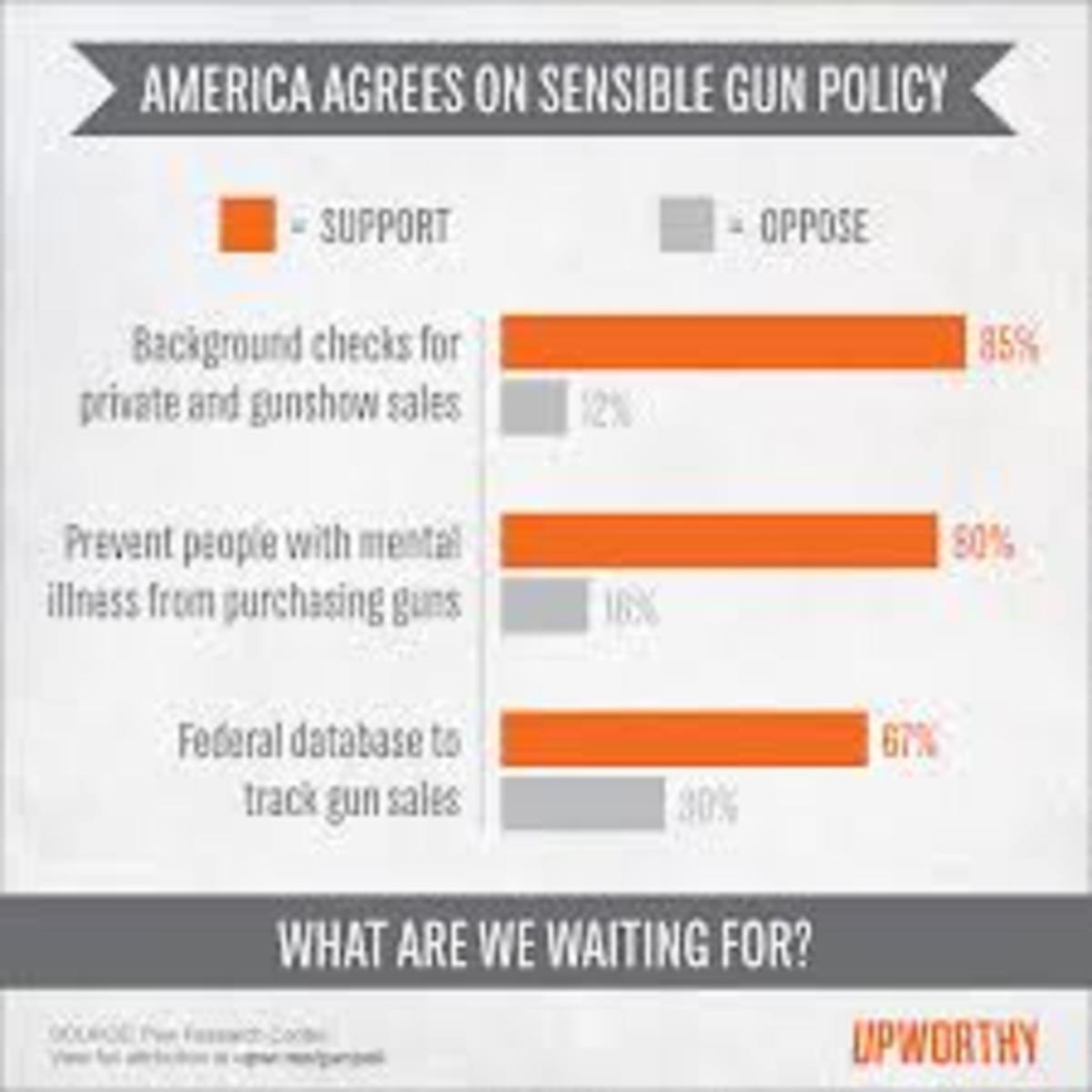A Gun Law Everyone Can Support

The Problem With Universal Background Checks
The recent attempt to pass several “gun control” laws in Congress shows that this is an issue that is not going to go away anytime soon. For many reasons this issue crosses both party lines and political philosophy. However, as a general rule the Republicans and conservatives tend to dismiss the idea that more gun control is needed. The public is split on the issue.
The Manchin-Toomey amendment in the spring of 2013 came the closest to passing in the recent attempt to add to the nation’s multitude of laws concerning the buying and selling of firearms. The law would have forced almost every private transfer of a firearm into using the NCIS system which was set up to allow federal firearm dealers to know that they were selling to an "approved person."
It was oversold as a solution to Sandy Hook and other tragedies when everyone, including the sponsors, admitted that it would not have prevented these events from happening. This, and other flaws, led to its defeat.
However, the issue is eventually going to come back. The Democrat party is going to continue to paint the Republicans as cold-hearted, not-caring politicians who are only the party of “No” instead of the compassionate party like they are who is “trying to do something.” The willing media will certainly go along with this characterization.
As an alternative to the Manchin-Toomey type of gun control law there is an approach that has not been tried. It meets the two key ingredients to actually be passed with bi-partisan support.
- It will accomplish something of value
- It will have the approval of the majority of gun organizations
Every proposed “universal background check” law starts and ends with the private seller. In some ways this makes sense since he is the one who is providing the firearm to another. However, the way the real issue is viewed by the public is exactly the opposite of the way it is normally framed by the media and lawmakers.
People really don’t care that law-abiding George sells his gun in a private sale to law-abiding Sam. People are concerned when law abiding George sells his gun to convicted felon Fred or nut-case Susie in a private sale because he has no way to check if they are eligible to purchase a firearm. Legal person on both sides of a private sale = okay with public. Illegal or ineligible person on the buying side of a private sale = not okay with public.
Because everyone is more worried about preventing a “disapproved person” from buying the firearm this method starts and ends with the buyer instead. This intuitively begins to make more sense.
This is not a panacea that will stop a Sandy Hook and it should not be sold that way. However, if it is sold as just what the public actually wants, a way for a private seller to know that the person buying the firearm via a private sale is acceptable to the general public as a firearm owner then the public will support the bill. The Republicans will get the credit for moving forward on the issue with a real, workable solution that does not infringe on the rights of gun owners.
This proposal does have some holes to fill in, but the general concept is not only workable but will prove to be popular among many gun owners. I am active on a gun owners forum with over 30,000 members and the general consensus on the forum is that it is important for gun owners to be responsible to whom we sell guns to in a private sale. Give gun owners a proper tool and it will be used.

A Better Way Than Universal Background Checks
Law abiding Sam wants to buy a gun in a private sale. He voluntarily wants to show any potential seller that he fits the category of the BATF approved owner. He logs onto a special federal-based website via a computer or phone app and inputs the same basic info that he would fill out as if he was at a gun store with a Federal Firearms Licensed dealer.
The system would have to be sophisticated enough to know it is actually Sam on the other end of the computer inputting his own information and not Sam's neighbor; being nosey about if Sam can buy a gun. This is a programming/database management question that can be worked out by the experts.
Within the normal speed of a NICS check (less than 15 minutes) the approval comes back, and he prints out a certificate with a unique number code on it along with his name and address. The certificate can also be sent to a smart phone for immediate use at a gun show or other venue. This certificate is now good for 90 days and during this period Sam can use it to show any potential seller that he is eligible to purchase any otherwise legal firearm(s) subject to any further state restrictions.
The federal website legally cannot store info about Sam’s request and his approval, other than that the unique number is valid for a certain period. This number can now be verified either over a computer or by phone by the potential seller of a firearm to Sam. The seller verifies the number and Sam’s ID and if the number is good to go and the ID matches up then he knows that Sam is also good to go.
The government has no knowledge/record of the sale/transfer and cannot legally store info about when someone calls in to verify a number. The individual states cannot require that the seller keep a record of the unique number.
This allows the private seller, whether over the backyard fence, in a Wal-Mart parking lot, or at a gun show to know for certain that he is selling his gun to an approved person without violating anyone’s right to keep and bear arms. Since the program is voluntary the seller can still sell the firearm to a person without the certificate.

Questions and Answers
Why is the process not mandatory?
In my opinion making it mandatory at the federal level will kill the potential for passage. Over time the majority of law abiding gun sellers will begin to require from their own personal convictions that the buyer should show them the certificate. With an aggressive marketing campaign it is well within the possibility that the gun show promoters will voluntarily make the process mandatory for all private sales at their shows.
I believe that a case could be made for giving the individual states the freedom to make the system mandatory in their state. This avoids a federal/state conflict. Some states such as California which already requires all private gun sales go through a FFL would not even need to bother with the federal program. There is a side issue with a mandatory requirement from a state that I will cover in a moment.
Municipalities below a state level cannot mandate the system for their local area.
Who pays for the system?
Neither the buyer nor the seller should have to pay to exercise a fundamental right. SCOTUS has made it very clear that the right to keep and bear arms is an individual right, and the buying and selling of guns is a core part of that concept.
I would dislike seeing any new tax, fee or other burden put on the gun community. If the general public insists that there should be greater scrutiny over who buys guns then the general public should be willing to pay for it. Putting the burden on the gun owners reduces the opportunity to build a positive consensus around the proposal.
I also believe that if a state mandates it for their citizens then the state must pick up the cost involved for their state. They cannot charge or surcharge the individual buyers or sellers to pay for the costs.
Are there “sweeteners” for the firearm community?
Yes, a compromise works to give everyone something and it is important that the firearm community feel they have a reason to back the bill. The following parts are important to be included:
- Right now it is illegal for the resident of one state to purchase a firearm from the resident of another state without going through a FFL in the buyer’s state. If the buyer has a unique number then he can buy a gun from an individual in any state without going through a local FFL. After all, the program just declared him an approved person so what difference does it make from where he purchases his firearm?
It would be easy for someone in Indiana to verify the unique number for someone in Oregon, but harder to verify the actual identity to know they match up. This needs a solution but it should be do-able. Also, the laws concerning shipping handguns will have to be modified to make this provision work. It may wind up that this provision only applies to face-to-face sales.
- Someone with an approved unique number will not have to go through a background check when they purchase a firearm from a federal dealer within the certificate timeframe. The federal government has just declared him an approved person so what is the sense of approving him again? All other paperwork by the buyer and FFL basically remain the same.
What timeframe does the certificate last?
Ninety days is just an arbitrary timeframe. The more rabid gun-control community would probably want it to be three hours, the pro-firearm people probably want a 365 day timeframe for it to be good. I think that 30 days is the workable minimum and 180 days perhaps a bit too long.
What happens when NICS goofs?
Many law abiding citizens are tuned down each day for firearm approval purchases at gun stores because of confusion within NICS as to the proper identity. Others are subject to delay of several to many days. There needs to be an adequate ability to respond to an improperly denied or delayed request the same as done at a gun dealer’s place of business.
Are there weaknesses in the proposal?
Yes, the entire program depends upon the quality of the information in the federal database. I know that some proposals have been made to strengthen the ability of the states to provide quality info and perhaps some of those can become part of this greater proposal to make it more attractive.
The proposal does not stop straw purchases, gun runners, car trunk dealers and others who purposefully break the law. These problems are best left to other laws.
The trust the gun owner public puts into the program will only be as good as their trust that the information the buyer puts into the computer is not keep at any level. Otherwise the program turns back into the same question of the government keeping a database of gun owners which helped sink the poorly written and vetted Manchin-Toomey.
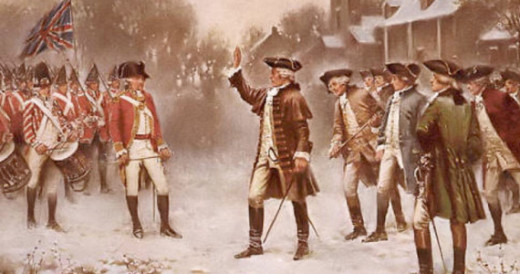
More Reading
I invite you to take a look at some of my other writings on the issue of firearms and their place in society. You might like
Is the damage to society from the misuse of guns worth the freedom to have guns?
Assault Weapons: Evil Black Rifles (or perhaps not)
and...
The Second Amendment as a Prophylactic
If you enjoyed the article I encourage you to "like" it on Facebook and other social media to allow others to enjoy it.




